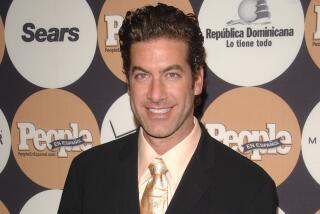PASADENA : PBS President Urges Grass-Roots Lobbying Effort
Describing public television as a “small and vulnerable institution” with “nothing to fight with but a sword called truth,” PBS President Ervin S. Duggan on Wednesday urged the “broad center” of Americans who value public programming to let Congress know.
No lobbying strategy “will be nearly as effective as the voices . . . and letters from people around the country. . . . It seems to me they should speak out,” Duggan said to an audience of TV writers and critics in Pasadena.
Duggan, a former Federal Communications commissioner who began his public career as an aide in Lyndon B. Johnson’s Administration in the mid-1960s, said it is his impression that “moderate Republican business people in city after city are the heart and soul of public television at the local level.” He said he hopes they also will “make their voices heard.”
Ironically, Duggan’s remarks came on the same day that U.S. Rep. Newt Gingrich (R-Ga.) was sworn in as Speaker of the House. After the GOP sweep last November, Gingrich said he wanted to “privatize” and “zero out” the Corporation for Public Broadcasting, which helps funds public TV and radio.
Duggan scoffed at arguments that public television doesn’t get enough money from its most popular producers, such as the creators of “Barney.”
“We do not own all the rights,” he explained, adding that if a congressman makes money from book royalties, no one expects the royalties to be returned to Congress.
In an effort to refute charges that it is “elitist,” PBS has released a Nielsen survey for the week of Oct. 17-23, 1994, showing that low- and middle-income households accounted for more than half of its audience. The survey also reported that PBS reached more viewers--59.4% of all households in an average week--than any cable network.
More to Read
The biggest entertainment stories
Get our big stories about Hollywood, film, television, music, arts, culture and more right in your inbox as soon as they publish.
You may occasionally receive promotional content from the Los Angeles Times.










